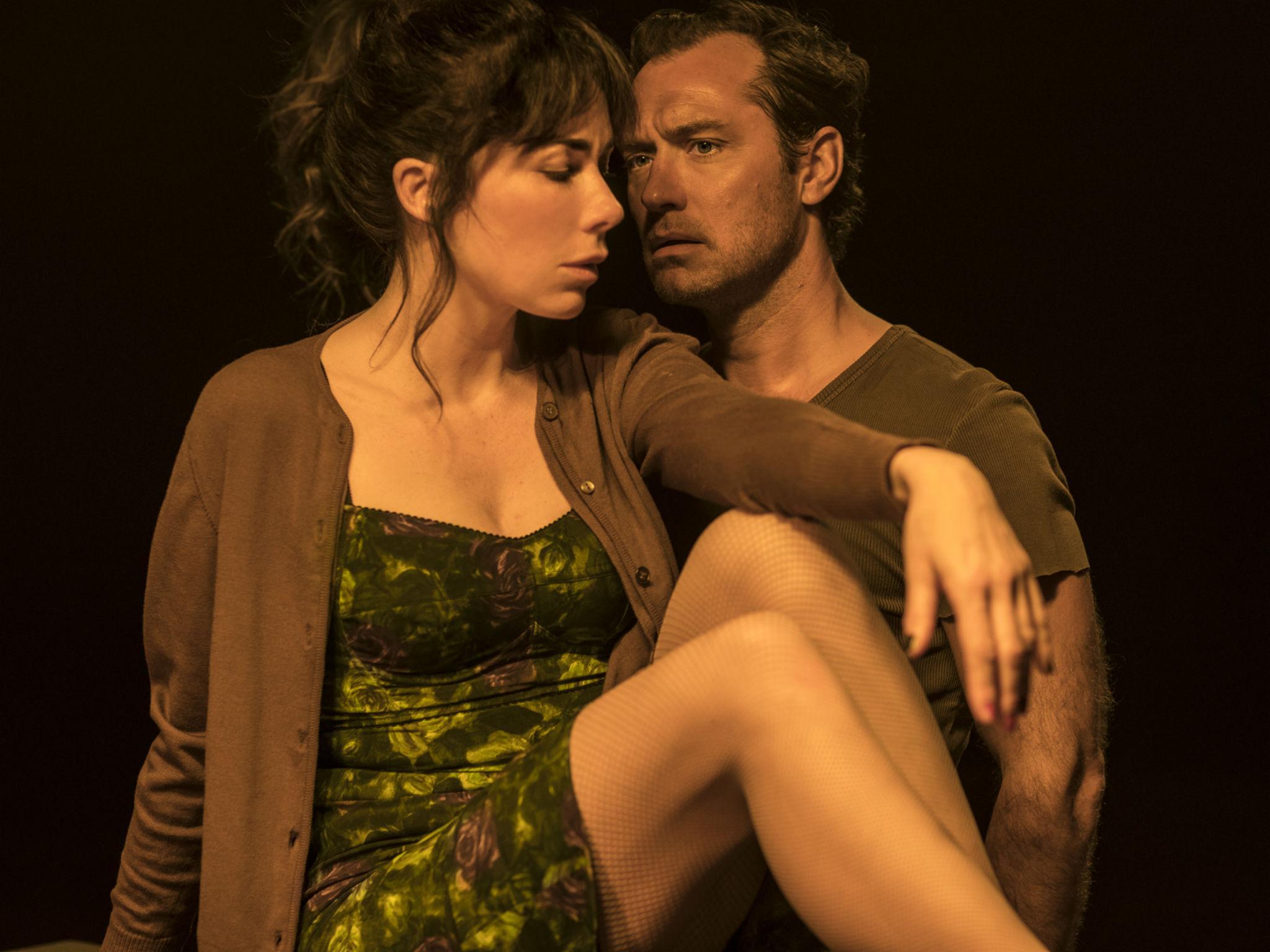Obsession, Barbican, London, review: Jude Law is muscular and brooding but wooden
Law plays the handsome drifter Gino in a new stage adaptation of Visconti’s sexually charged 1943 film 'Obsession', directed by Ivo van Hove

Your support helps us to tell the story
From reproductive rights to climate change to Big Tech, The Independent is on the ground when the story is developing. Whether it's investigating the financials of Elon Musk's pro-Trump PAC or producing our latest documentary, 'The A Word', which shines a light on the American women fighting for reproductive rights, we know how important it is to parse out the facts from the messaging.
At such a critical moment in US history, we need reporters on the ground. Your donation allows us to keep sending journalists to speak to both sides of the story.
The Independent is trusted by Americans across the entire political spectrum. And unlike many other quality news outlets, we choose not to lock Americans out of our reporting and analysis with paywalls. We believe quality journalism should be available to everyone, paid for by those who can afford it.
Your support makes all the difference.The Belgian maestro, Ivo van Hove, is renowned for taking classic plays and re-exploring them in concentrated, spare, non-naturalistic modes in order to unlock their primal force. There can be no denying that he is one of the greatest directors in world theatre, but the results are uneven. The ritualistic Attic pulse of his take on A View from the Bridge brought the mesmeric intensity of Greek tragedy to Arthur Miller’s 1950s play about a Brooklyn longshore man. By contrast, his foray into the ancient repertoire, in Antigone with Juliette Binoche that had its London run at the Barbican, seemed to me to evince all the drawbacks of a conceptual approach. The show was deliberate to a fault and full of “impressive” interpretive decisions, but weirdly unmoving or capable of grabbing you by the gut.
I’m afraid to say van Hove’s latest venture – starring Jude Law and jointly produced by the Barbican and Toneelgroep Amsterdam – has to be filed with his pieces that don’t really come off. The story of erotic obsession and murder originated with James M Cain’s The Postman Always Rings Twice; in 1943, the great director, Luchino Visconti, turned it into a pioneering masterpiece of Italian neo-realist cinema. With adaptation and dramaturgy by Jan Peter Gerrits and an English script by Simon Stephens, this version is played without an interval for a hundred minutes and offers an experience where the nature and atmosphere of the material and the director’s aesthetic bent are in danger of cancelling each other out.
Law plays Gino, an attractive drifter in search of work. Insulting, cantankerous Joseph (Gijs Scolten van Aschat) offers him a place to stay if he can fix his car. The car engine dangles from the ceiling looking a bit like a clump of heart. But Gino only has eyes for Hanna (Halina Reijn), Joseph’s much younger wife. The husband’s back is barely turned before they are peeling off each other’s clothes and assuming postures of abandon that can be seen in close-up at the back of Jan Versweyveld’s set. Everything feels detached, as though we were viewing the idea rather than the reality of sudden torrid carnal intimacy between two people who have been humiliated by poverty and ostracism. Law is muscular and brooding but wooden; van Aschat does a fine repellent job in emphasising the husband’s misguided sense of impunity when he enjoys abasing Hanna in front of the young man; Reijn is extraordinarily uninhibited.
The couple try to abscond together (there’s a lot of running on the stop on a wheezy travelator) but her courage fails. The next occasion when all three see one another is at the opera-singing contest where the husband is a competitor. The fact that only two survive that car journey is signalled by the sudden deluge of petrol from the motor engine above and the oily scrimmage below. Law is more affecting in the later stages – obsessively aggrieved over his belief that he has been used in a plot to get rid of Joseph and plangently/peevishly expressing revulsion at being asked to live a dead man’s life.
There is very little sense of potent sexuality. I’m not sure the feeling of abstraction – that we could be anywhere, inspired here by the box-like blank set and overhanging engine – works for piece that is so sweatily soaked in realism. Not that you feel any of the heat they all talk. I think this is the first van Hove production where I have checked the end and couldn’t believe it was so early.
Join our commenting forum
Join thought-provoking conversations, follow other Independent readers and see their replies
Comments